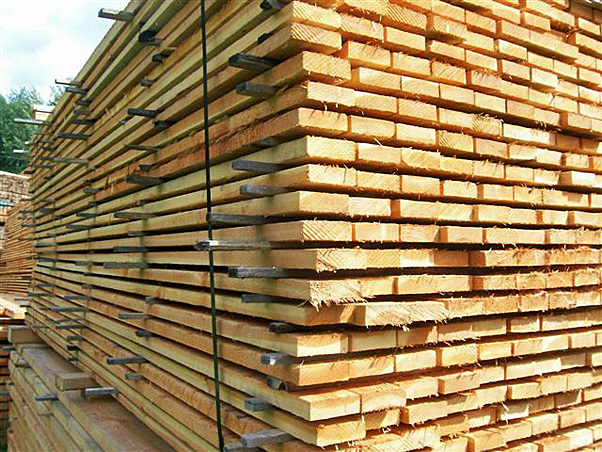U.S. Sets Duties on Canadian Softwood Lumber
This week, the U.S. Department of Commerce announced preliminary countervailing duties on Canadian softwood lumber. The duties, a response to a petition filed by the Committee Overseeing Action for Lumber International Trade Investigations or Negotiations (COALITION), are set at: West Fraser 24.12%, Canfor 20.26%, Tolko 19.5%, Resolute 12.82%, JD Irving 3.02%, and 19.88% for all other Canadian producers.
"These duties stand to hurt hard working men and women in our mill communities across Canada," said Derek Nighbor, CEO, Forest Products Association of Canada, in a FPAC release yesterday afternoon (April 26, 2017). "The duties are unwarranted and without merit. We 100% support the federal government's ‘Team Canada’ position and we must have a fair and equitable trading structure for both our industry and U.S. customers," Nighbor emphasized.
According to FPAC, "these duties will have a negative impact not only in Canada but also on U.S. consumers. Currently, it pointed out, American demand for lumber far exceeds what the American industry is able to produce. They need Canada's softwood lumber."
Research from the National Association of Home Builders in the U.S., FPAC continued, found that for every $1,000 increase in house prices (due to higher lumber costs), 150,000 families are priced out of purchasing a home. "It was also found that at just a 15% tariff, 4,600 American jobs and $265 million in wages and salaries would be lost," it added.
"We will stand up for our industry's workers and impacted mill communities in Canada and call on federal and provincial governments to work with us to ensure they can maintain their livelihoods during this difficult period," Nighbor stated.
The Montreal Economic Institute (MEI) noted earlier this week that for Quebec and British Columbia, respectively, 5,150 and 15,000 direct jobs will be put at risk by the imposition of these tariffs.
"The imposition of such high tariffs is the worst scenario that Canadian forestry sector producers and workers could imagine," said Alexandre Moreau, public policy analyst at MEI, Montreal, Que., Canada. "Currently, the American market represents nearly 75% of Canadian softwood lumber exports, and 24,300 direct jobs depend on that market."
With the pending renegotiation of NAFTA, Moreau emphasized, it is important for the U.S., and Canada as well, to recognize that their protectionist measures are very costly for the millions of consumers situated on either side of the border. Indeed, Canada does not allow Americans access to its dairy, egg, or poultry markets, which are protected by tariffs of up to 300%. The cost for Canadian households adds up to billions of dollars, Moreau noted.
The Montreal Economic Institute is an independent, non-partisan, not-for-profit research and educational organization. Through its studies and its conferences, the MEI stimulates debate on public policies in Quebec and across Canada by proposing wealth-creating reforms based on market mechanisms.
Canada is the largest softwood lumber exporter to the U.S. The Canadian forest products industry is vital to the national economy and the economies of many forest dependent communities across the country. The sector is one of Canada's largest employers, providing 230,000 direct jobs and supporting 1 million families across the country.
The $65-billion-a-year forest products industry represents 2% of Canada's GDP and is one of Canada's largest employers, operating in more than 200 communities, providing 230,000 direct jobs, and 1 million indirect jobs across the country.
TAPPI
http://www.tappi.org/

